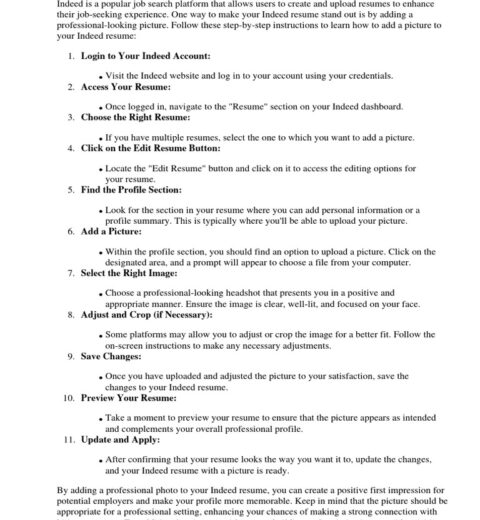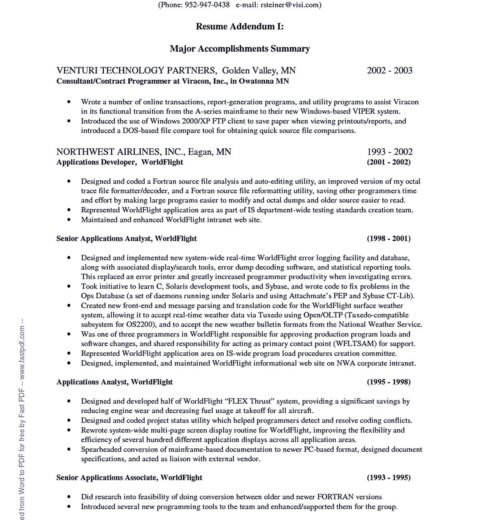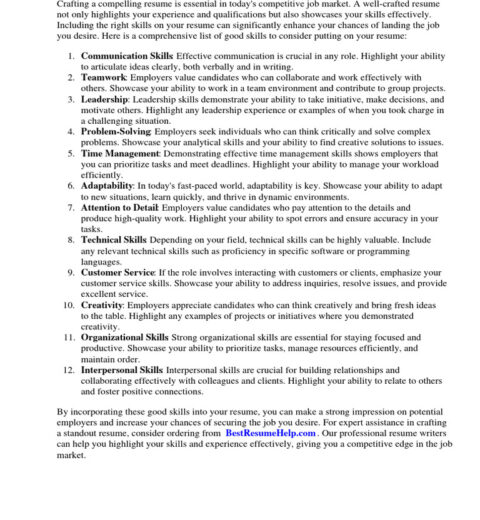In the vast landscape of employment, where job seekers navigate a complex terrain, the resume acts as both compass and map, guiding recruiters to find the best candidates. However, the pivotal question that looms like a specter in the background is: Is there a limit to the length of a resume? Just as a masterful sculptor chisels away excess marble to reveal a striking statue, so too must a job applicant distill their experiences and qualifications into a concise yet compelling document. This balance between brevity and comprehensiveness is what defines an effective resume.
To understand the nuances of resume length, it’s essential to delve into the preferences that recruiters harbor. Many experts suggest that there is not a one-size-fits-all answer. The proverbial guideline has frequently recommended a one-page resume for entry-level positions and a two-page resume for mid-level to senior roles. This adage stems from the belief that recruiters scour hundreds, if not thousands, of resumes in their pursuit of the ideal candidate. In this time-sensitive environment, the resume functions as a critical filtration system.
Imagining a world where resumes resemble novels, we see that the most effective narratives often engage the reader swiftly, drawing them in with dense, impactful prose rather than sprawling detailed chapters. Recruiters, akin to seasoned literary agents, are more likely to respond positively to resumes that tell a compelling story succinctly. Each section of a resume—experience, education, skills—should evoke a sense of intrigue while efficiently showcasing qualifications.
Field-specific expectations also wield significant weight. For instance, those in academia or scientific research may find themselves crafting an expansive Curriculum Vitae (CV) that stretches multiple pages, detailing their extensive publications, research accomplishments, and educational pedigree. Here, the expectation diverges, as the depth of information supersedes concerns about length. In contrast, industries such as technology, marketing, and finance typically favor resumes that are laser-focused. A candidate needs to remember that these are industries where innovation and clarity reign supreme, and sprawling paragraphs will often drift into the abyss of obscurity.
However, length is not merely a matter of page count; it is also about clarity and relevance. Many recruiters have emphasized the significance of tailoring each resume to the specific role and company. This involves not only adjusting content but also refining the structure and presentation. A resume does not have to be long to be effective; instead, it should be intricately woven together like a finely crafted tapestry, with each thread representing a unique skill or experience relevant to the job at hand.
Amidst the debate over resume length, one must not overlook the aesthetically pleasing format. Recruiters appreciate resumes that are visually engaging yet not cluttered. Adequate white space—much like a breath amidst overwhelming words—allows the reader to digest information comfortably. Utilizing bullet points can enhance readability, allowing key achievements and responsibilities to stand out against the backdrop of a polished format.
Furthermore, the rise of digital applications and Applicant Tracking Systems (ATS) adds another layer of complexity to the discussion of resume length. These systems often scan resumes for keywords before they ever reach the human eye. As such, crafting a resume that is both ATS-friendly and captivating to recruiters requires a delicate balance of strategic keyword placement and engaging content. This means that even a one-page resume can require significant time and effort to optimize.
Consider the metaphor of creating a recipe: each ingredient has a purpose, whether it be for flavor, texture, or presentation. Likewise, each line on your resume serves to elevate your candidacy. Avoiding superfluous details or redundant phrasing is akin to excluding unnecessary spices that might overshadow the dish’s fundamental taste. Recruiters appreciate resumes that are direct, impactful, and genuine, encapsulating an applicant’s essence without excess embellishment.
Nevertheless, even the finest resumes can face challenges. Emotional connections, a unique narrative, or a powerful call to action can amplify the resonance of a resume. These elements beckon recruiters to view candidates not just as a list of accomplishments but as individuals with stories worth exploring further. Infusing personality into the resume—through creative yet professional language—can kindle interest, setting candidates apart in a crowded field.
Ultimately, the crux of the matter lies within the distinct dynamics of each hiring environment. The answer to the question of resume length is not etched in stone. As industries evolve and the nature of work transforms, so too will the expectations surrounding resumes. In a world increasingly dominated by digital interactions, job seekers must remain adaptable, continuously honing their ability to present their qualifications succinctly and appealingly.
In conclusion, while there are general guidelines regarding resume length, the essence of crafting an exceptional resume lies in the ability to capture one’s professional journey accurately and attractively. Treading the fine line between enough and too much is akin to mastering a delicate dance—striking the right chord can open doors not only to interviews but to meaningful career opportunities. Ultimately, candidates should focus on the clarity of their message, the relevance of their experiences, and the irreplaceable touch of their individuality to resonate with recruiters everywhere.




